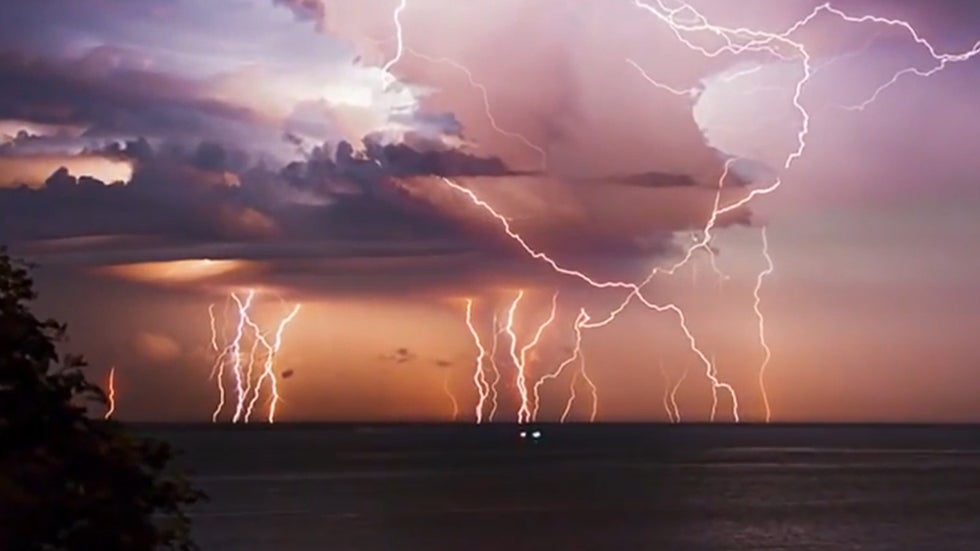Ron Brackett
 Only about 10% of lightning bolts strike over the oceans, but those bolts can be far more intense.
Only about 10% of lightning bolts strike over the oceans, but those bolts can be far more intense.Not only does salt make your french fries tastier – it also makes lightning flashier.
Marine scientist Mustafa Asfur was researching how lightning bolts affect water chemistry when he discovered that the water chemistry could be affecting the lightning.
Only about 10% of lightning bolts strike over the oceans, but those bolts can be far more intense, according to Asfur, whose research was published in the Journal of Atmospheric and Solar-Terrestrial Physics.
Asfur wanted to know why. What he found was that lightning generated in his experimental storm box was more intense when he used salty water than when he used fresh water or soil.
SPONSORED: Level up your adventure time with Gander Outdoors
"We were surprised," atmospheric scientist Colin Price of Tel Aviv University in Israel, Asfur’s boss at the time, told Hakai magazine. "Everyone believed, including myself, that something in the thunderstorm controls the intensity of the flash; something in the cloud."
Asfur collected very salty water from the Dead Sea along with less salty samples from the Mediterranean and the Sea of Galilee, Hakai reported. Galilee is barely salty, but discharges over water from there were 1.5 times brighter than flashes over wet soil. And discharges over Dead Sea water were nearly 40 times brighter.
Asfur's research team thinks the positive and negative ions that salt splits into in water help conduct electricity. More ions mean a brighter flash.
(MORE: Western Australia Bushfire Drives Hundreds from Their Homes)
The research "is a nice step towards showing that the salty oceans and seas could be responsible for more intense lighting on average," Robert Holzworth, who manages the World Wide Lightning Location Network, told Hakai.
But, he added, "There’s a big difference between that small-scale lab study and actual lightning. There’s a whole bunch of dynamic processes that aren’t included."
The Weather Company’s primary journalistic mission is to report on breaking weather news, the environment and the importance of science to our lives. This story does not necessarily represent the position of our parent company, IBM.
The Weather Company’s primary journalistic mission is to report on breaking weather news, the environment and the importance of science to our lives. This story does not necessarily represent the position of our parent company, IBM.

No comments:
Post a Comment